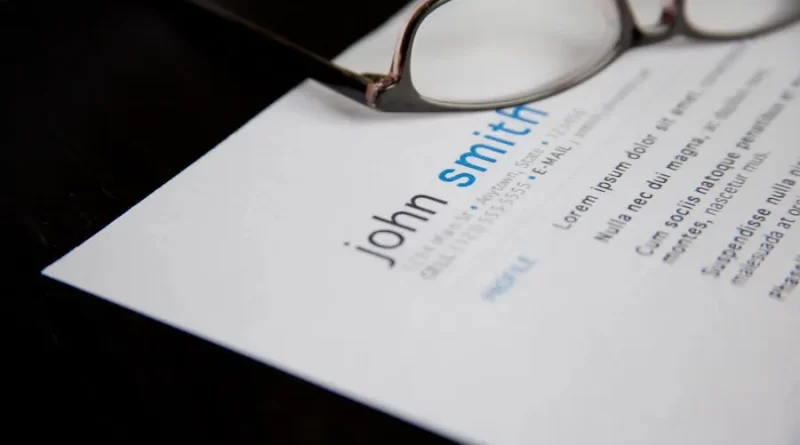How to write a student resume without work experience?
Are you looking for a job and afraid of screwing up because you have no experience? Don’t worry. There is a solution to everything. Contrary to what you may think, it is perfectly possible to write a student resume without any work experience. Even beginners have assets to put forward to convince recruiters. In any case, you have to start with this step one day! It’s a must if you want to find your first job. Here’s how to do it.
Sections to include in the resume
Whether you are looking for a job, an internship, training or a small vacation job, you must have your CV with you. The CV is the reflection of your skills and experiences in the professional world. It is the first document that represents you in the field.
To do this, you need to include a few important sections in your resume. These sections will help your recruiter better understand your background and also help you structure the information you want to send them. Some of the most important sections of a CV, which are also valid for writing a student resume, are contact information, professional objective, education, skills, and experience if you have any and even if it is not professional.
The contact information and the professional objective should be placed in the first position on your CV, because it is thanks to them that your recruiter can contact you and measure if you are really motivated and suitable for the position in question. In the “Contact information” section, put your first and last name, the position you are looking for, your e-mail address, your telephone number, and an e-mail address if you have one.
In the professional section, describe your background in 4 to 6 lines. Present yourself in such a way that the recruiter will be interested in your application. Do not be shy. Talk about all the points that can increase your chances of being selected. This also applies to the “Experience” section. Any experience is good to have. Is it an internship during your studies, or a training as a volunteer, or a massive participation in a youth movement? This is a plus for you.
What about the “Education” and “Skills” sections. Demonstrate that you have all the knowledge required for the given position and highlight all your academic achievements by listing all your diplomas and certificates, from the most recent to the oldest. Generally, recruiters give more chances to candidates who have more experience (not theoretically professional) and degrees.
In the “Training” section, enter the title of your diploma/certificate, the name of the institution from which you graduated, the date of graduation, and a brief description of the training. And in the “Skills” section, create a list for the most important skills you have. These can be either technical skills, theoretical skills, personal qualities, soft skills or transversal skills.
But don’t forget that there are even more important sections to include in your student CV. Additional, but very influential, sections such as “Languages”, “Volunteering”, and “Interests” are often important in order to land a first job. They allow you to showcase your skills, abilities, creativity, initiative, team spirit, and more. If you master, for example, 2 to 3 foreign languages, this is already a great professional asset, especially if you are applying to an international company.
Highlighting and customizing internships
Among all these sections, as a beginner, you must put forward the one that details the internships you have done. They are very valuable for the recruiter, because through these internships he will be able to measure your seriousness and your dedication to the given position. Be sure to talk about your internships so that they have at least something to do with the position in question. Check the context in which you announced them. Present them in the best possible way. In short, if you’ve done internships before, you can understand their importance.
In any case, avoid using a generic and too banal CV. Of course, you can opt for a free online resume template, but make sure you personalize it, if only to make a good impression on your recruiter. Personalize it by putting a relevant title, playing with the keywords used by the recruiter, and by including a very professional photo, a ¾ bust taken recently (proper attire, gaze firmly fixed to the camera lens, solid color background, etc.).
Share your associative activities
To influence the recruiter even if you have no experience or have not done any internships, you can play on your community activities if you have done any. If you are a student, think about being part of an association for a certain period of time, either at your high school, university, or within your community. These experiences are very important and should be mentioned in your resume.
Whatever the company that called you, the fact that you participated in this or that association represents that you have already “worked”, because these associations are considered as mini-companies. And the fact that it concerns volunteer work is taken very seriously, because your future recruiter will be able to measure your motivation for a particular position from your participation.
Never hesitate to mention these activities whether you have been a mentor to other students, a sports coach, an advisor, or just a member. This will indicate your listening and management skills. In short, to write a student CV without very interesting professional experience, keep it simple and honest while knowing how to turn your “personal experiences” into professional assets.

